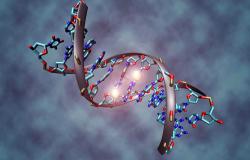We need to Talk about Big Data and Genomics. Here's Why – and How

In an age when most of us have personal data in the digital ether, consent, privacy and protection still remain grey areas. Many of us give away or share our data, often without realising to what extent we are doing so. Even if it is explicit in the terms and conditions, how many of us can claim to read these fully? So can we really be sure our data is being handled carefully?
Whilst regulations exist to protect us (for example the General Data Protection Regulation (GDPR) in Europe, or the Protection of Personal Information Act (POPI) in South Africa), there is still a disconnect between these codes of practice and the everyday person, with little evidence to suggest there was any public consultation in their development.
What does this mean in terms of our genomic data?
Genomics (the study of our genes, which are made up of DNA) is emerging as a key source of data within most disciplines of healthcare. If we donate blood, participate in genetic research or have an online genetic test, our genomic data will join the array of personal data that is already held both online and offline about us. This offers a rich source of insight about human health and is sometimes bought, sold and shared between researchers (both non-profit and for-profit) on a huge scale, in ways often unknown to the person who donated the data. Or course, everything that happens to our genomic data should only be done with our consent, but again – how many of us actually read the terms and conditions?
How do we develop regulations that protect data donors?
For regulation to be truly connected to those it serves to protect, it needs to reflect the views and concerns of the public as well as those from whom the DNA data is derived (that is, the ‘data donors’). For people to feel heard, we therefore need to start asking them the right questions and feed their answers back to policy-makers.
As such, the first crucial questions are: How do people feel about their genomic data being shared with others? How much control do they expect to have over this? Are there certain organisations they wouldn’t want to have access to their data? What do they think would happen if they were identified from their data?
But before people can answer, that they need to be given time to think through the issues, and have time to reflect, discuss and ask their own questions. This requires investment from scientists and policy-makers to explain what it all means.
DNA (genomic data) is sometimes seen as the purest and most personal kind of data, fundamental to our identity and existence. As part of the global endeavour to understand human health and address suffering, we would be right to expect our scientists, clinicians and academic institutions to be gathering, storing, analysing, and to some extent sharing, our DNA and medical information, within the context of research and discovery. And in return it is reasonable to expect that the data at the heart of this endeavour will be protected, looked after and most importantly handled transparently and with respect.
Whilst data might be de-identified – that is, with names and addresses removed – an issue people should be aware of is that anonymity cannot be absolutely guaranteed. Health information, for instance, can always be linked to other personal information that is also available on the web – and in our increasingly data-connected world, it becomes entirely feasible that people could, in theory, be identified from their DNA alone. Do people mind? What could happen? These are the conversations we need to be having collectively. It is impossible to expect perfection. No regulation is absolute. No data is 100% secure. And anyone who says otherwise is over-promising. As data donors we need to accept that there is always going to be risk, but what levels of risk are acceptable? What we should be striving for is a system that offers clear choice and active consent. This can only be achieved if we open up discussion and debate as a collective and connected society.

A people-powered conversation
If science is truly going to serve humanity in the best way possible, we need to be clear on the conditions of interaction and transaction with people. Placing society at the core of that conversation assures their demands, desires and concerns are heard, and gives people the opportunity to inform policy as it is developed.
A comprehensive consultation process involving ordinary people from all walks of society will not only lead to better regulation, but will ultimately lead to greater progression in science and research, with huge benefits for humankind.
At the moment ambiguities exist around the transparency of some companies and regulatory bodies that broadcast commitments and assurance about data use. This leads to a lack of trust, and stops people willingly coming forward to share their DNA – their genome – to advance medical research and progress healthcare.
How do we move forward?
For a global conversation to be effective, it needs to be led by the experts, who must provide full transparency to highlight the issues for debate. At present, there is no global two-way conversation that consults data donors as well as the principal beneficiaries of the data (the scientists, companies, doctors and patients).
The experts need to ‘go first’ in creating this dialogue – this means medical, clinical and academic institutions and policy-makers clearly articulating the assumptions behind their ‘people’s best interests’ statements and then making those assumptions available for discussion.
In turn, society needs to be able to weigh and balance the risks inherent in sharing their data with individuals and organisations before deciding on whether to accept them or not.
An emphasis of thought needs to be placed on how science and humanity move forward together, and collaborate. As a society, we, collectively are a partnership and we need members of society to share the same visions with scientists, so that the journey into human discovery is one made together.
It is time for an inclusive conversation. The time for that conversation is now.
Anna Middleton, Professor and Head, Society and Ethics Research Group, Wellcome Genome Campus (Sanger Institute), University of Cambridge. Mavis Machirori, Research Associate, Policy, Ethics and Life Sciences, Newcastle University. Jenniffer Mabuka-Maroa, Consultant, The African Academy of Sciences. Tiffany Boughtwood, Manager, Australian Genomics Health Alliance.
This first appeared on the Agenda blog. The views expressed in this article are those of the author alone and not the World Economic Forum.
Image: Christoph Bock, Max Planck Institute for Informatics - CC BY-SA 3.0


